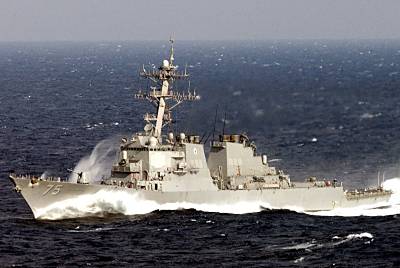WASHINGTON, April 5, 2011 — U.S. Transportation Command remains on schedule with the drawdown in Iraq and continued operations in Afghanistan, despite near monthly contingencies that challenge the focus of its operations, its commander told a congressional committee today.
“2010 was a banner year,” Air Force Gen. Duncan J. McNabb told the House Armed Services Committee. “Whether delivering combat power to Afghanistan through logistics, or humanitarian relief to the people of Pakistan, Haiti and Japan, our team kept our promises and delivered on time, on target and at the best value to the taxpayer.”
The 145,000 people who make up Transcom “overcome colossal obstacles” to do their job, McNabb said. “This is the best performance I’ve seen in my nearly 37 years of service.”
McNabb called Transcom the U.S. military’s “greatest asymmetric advantage” in its ability to move people and equipment and deliver supplies to troops anyplace in the world.
“We view our success through the eyes of the warfighter,” the general said, referring to the Transcom’s focus on supporting the combatant commands.
Transcom is successful because of “the power of the total force team,” he said, noting the command’s joint use of active and reserve military members, federal civilians and contractors to accomplish its missions.
“If we do this right, our warfighting commanders do not worry about their distribution pipeline,” he said.
In its service to U.S. Central Command, Transcom brought together partners throughout government and industry “to make logistics magic” in drawing down from Iraq, while surging in Afghanistan, McNabb said.
The command met President Barack Obama’s Aug. 31 deadline for having 30,000 additional troops in place in Afghanistan, McNabb said, while responding to a “record-breaking pace” of events last year, including disaster relief in Haiti, the Philippines, Indonesia, and Pakistan.
“Daily, I’m amazed and humbled by what our people accomplish,” he said.
The command met its requirements while also saving money, McNabb said. It has saved $110 million per month by using a combination of commercial surface and military air transport to move mine resistant, ambush-protected vehicles into Afghanistan, he said.
Expanding capacity in surface networks that supply Afghanistan is a focal point, the general said, and the Northern Distribution Network — the main artery for traversing 30,000 containers last year into Afghanistan through other countries — remains a priority. Transcom added two additional routes to the network last year, he added.
Transom delivered more than 60 million pounds of equipment and supplies into Afghanistan last year, nearly double the amount from 2009, the general said.
Transcom’s “ultimate ace in the hole,” however, is air, McNabb said. About 35 percent of what is delivered to Afghanistan — and everything of high value — is taken by air, he said.
Acquiring a new aerial tanker, McNabb said, is Transcom’s No. 1 acquisitions priority. “The faster we can get a tanker on board, the better for us,” he said.
Transcom air assets delivered 60 million pounds of supplies into Afghanistan last year — compared to 2 million in 2005 — and is on its way to dropping 100 million pounds there, McNabb said.
Source:
U.S. Department of Defense
Office of the Assistant Secretary of Defense (Public Affairs)

 von
von 